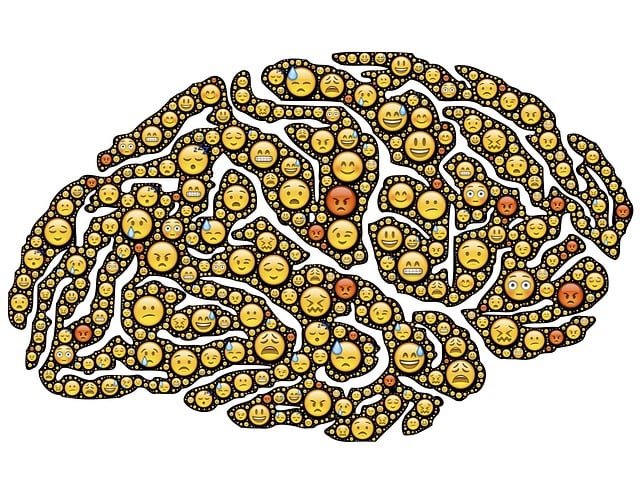Louisville Hebrew Speaking Therapy offers a specialized mental wellness program tailored for Jewish individuals, combining traditional therapy with cultural understanding. Focusing on emotional intelligence and self-esteem, it addresses common mental health challenges and provides culturally competent training for healthcare providers. This personalized support enhances resilience and community belonging. By integrating evidence-based practices like CBT and mindfulness, the program empowers individuals to manage stress, anxiety, and depression while strengthening communities through resilient members capable of positive societal contributions. Their comprehensive evaluation methods measure improvements in social skills, emotional regulation, stress management, and life satisfaction, ensuring tailored programs for optimal support.
“Explore the transformative power of mental wellness coaching programs, particularly through the lens of Louisville Hebrew Speaking Therapy—a cultural approach that bridges diverse communities. This article delves into strategies for designing effective coaching interventions tailored to various populations. We examine the integration of evidence-based practices and highlight methods to measure the significant impact these programs have on individual well-being. By understanding Louisville Hebrew Speaking Therapy’s unique perspective, we can enhance mental health support for diverse communities.”
- Understanding Louisville Hebrew Speaking Therapy: A Cultural Approach to Mental Wellness
- Designing Effective Coaching Programs for Diverse Populations
- Integrating Evidence-Based Practices into Coaching Sessions
- Measuring and Evaluating the Impact of Mental Wellness Coaching Programs
Understanding Louisville Hebrew Speaking Therapy: A Cultural Approach to Mental Wellness

Louisville Hebrew Speaking Therapy offers a unique and culturally sensitive approach to mental wellness, tailored specifically for individuals within the Jewish community. This therapeutic model recognizes the profound impact that cultural identity and language can have on one’s emotional well-being. By combining traditional therapy practices with an understanding of Jewish cultural norms and values, this program creates a safe and supportive environment.
The therapy focuses on enhancing emotional intelligence and self-esteem, addressing common mental health challenges while incorporating elements of cultural competency training for healthcare providers. This approach ensures that participants receive personalized support, enabling them to navigate their mental health journeys with increased resilience and a deeper sense of belonging within their community.
Designing Effective Coaching Programs for Diverse Populations

When designing effective coaching programs for diverse populations, it’s crucial to recognize and cater to unique cultural, linguistic, and personal needs. For instance, Louisville Hebrew Speaking Therapy can tailor mental health education programs to serve the specific requirements of Jewish individuals, addressing both general mental wellness concerns and ethnic-specific challenges. Incorporating culturally sensitive approaches ensures that coaching remains relevant and accessible to all participants.
A well-designed Mental Health Education Programs should go beyond general depression prevention strategies and include conflict resolution techniques suitable for various scenarios. By integrating these skills, coaches enable clients to navigate interpersonal difficulties, manage stress, and promote overall emotional resilience. This tailored approach not only enhances the program’s effectiveness but also fosters a sense of empowerment among diverse populations.
Integrating Evidence-Based Practices into Coaching Sessions

Integrating evidence-based practices into coaching sessions is a key aspect of developing effective mental wellness programs. At Louisville Hebrew Speaking Therapy, we recognize that combining scientific research with personalized coaching can significantly enhance client outcomes. Practices such as cognitive behavioral therapy (CBT), mindfulness techniques, and solution-focused brief therapy have been proven to support individuals in managing stress, anxiety, and depression, fostering positive thinking, and cultivating emotional healing processes.
By incorporating these evidence-based methods into our community outreach program implementation, we aim to provide a holistic approach that addresses both the mind and the heart. Our coaches are trained to facilitate conversations that encourage clients to reflect on their thoughts and emotions, develop coping strategies tailored to their unique needs, and ultimately, promote lasting mental wellness. This integrated approach not only benefits individuals but also enriches the community by fostering stronger, more resilient individuals who can contribute positively to society.
Measuring and Evaluating the Impact of Mental Wellness Coaching Programs

Evaluating the impact of mental wellness coaching programs is a crucial step in understanding their effectiveness and making informed improvements. At Louisville Hebrew Speaking Therapy, we employ various methods to measure success, ensuring that our coaching initiatives resonate with participants’ needs. This involves both qualitative and quantitative assessments, providing a comprehensive view of personal growth.
Through regular check-ins and feedback sessions, clients share their experiences, highlighting aspects such as improved social skills (Social Skills Training), enhanced emotional regulation, and increased life satisfaction. Additionally, we utilize standardized questionnaires to gauge progress in areas like stress management, self-compassion (Compassion Cultivation Practices), and overall mental wellness. By combining these data points, Louisville Hebrew Speaking Therapy can tailor programs to better support individuals, fostering meaningful transformations.
Louisville Hebrew Speaking Therapy offers a unique cultural approach to mental wellness coaching, catering to diverse communities. By designing inclusive programs that integrate evidence-based practices, we can effectively support individuals’ mental health journeys. Measuring the impact of these initiatives is vital for continuous improvement, ensuring that coaching programs like these remain accessible and impactful for all who need them. This structured approach, combining cultural sensitivity with evidence-based strategies, has the potential to revolutionise mental wellness support.














